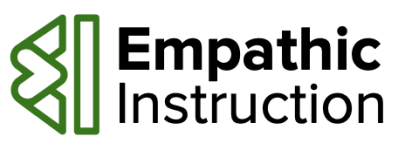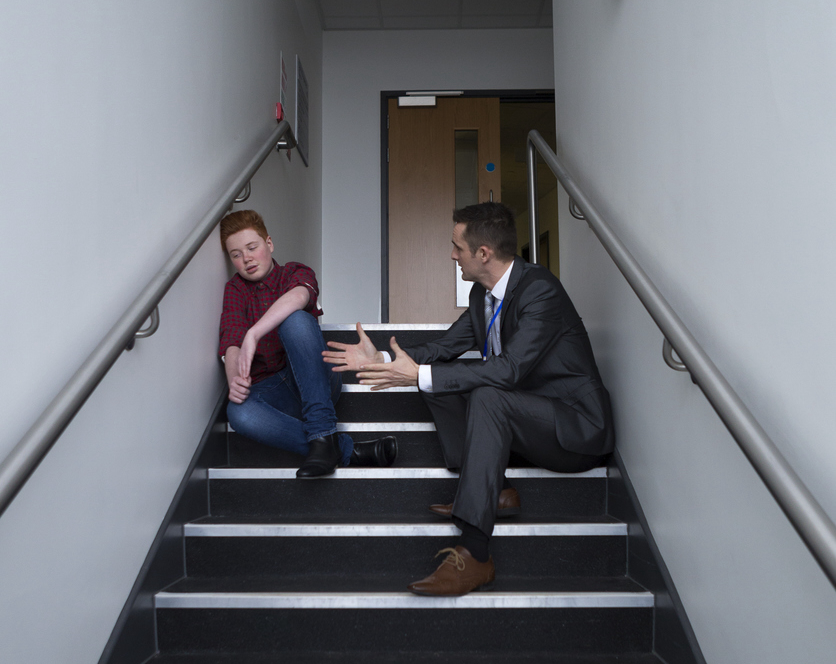
Strong student-teacher relationships support positive student behavior and academic success. But conflicts and stress can get in the way of those relationships. Dr. Okonofua, a professor at Brown University, is a leading researcher on the impact of empathy in teacher-student relationships. Learn more about his Empathic Instruction research below, and visit the about page to learn how Empathic Instruction puts his research into practice.
A Vicious Cycle: A Social-Psychological Account of Extreme Racial Disparities in School Discipline (2016) Perspectives on Psychological Science.
A scalable empathic-mindset intervention reduces group disparities in school suspensions. (2022) Science Advances.
When Policy and Psychology Meet to Mitigate Racial Disparities In Discipline. (2020) Science Advances.
Brief Intervention Halves Suspension Rates. (2016) Proceedings of the National Academy of Sciences.
Two Strikes: Race and the Disciplining of Young Students. (2015) Proceedings of the National Academy of Sciences.

Article by Drs. Okonofua and Walton, "How to Cut Disparities in School Suspension Rates: An empathic mindset in teachers cuts racial disparities in suspension rates." (2022)

Article by David L. Kirp. "Don't Suspend Students. Empathize." (2017)

Article by Sarah D. Sparks. "How Feeling Respected Transforms a Student's Relationship to School" (2016)

Article by Rebecca Klein. "The Key to Reducing School Suspensions? Treat Kids With Empathy, Says Study" (2016)

Article by Alex Dobuzinskis. "U.S. study finds teacher bias in discipline toward black students" (2015)

Article by Nathan Collins. "Going to the Principal's Office, in Black or White" (2015)

Podcast by Bob Hirshon. "Race & School Discipline" (2015)

"I love this PD. I feel like it's very useful for all teachers, not just new teachers. And if there was a committee at my school, I'd be the first one to volunteer to be on there. Because… I have a child that's in middle school. And I feel like those teachers have less mercy. They have less mercy than we do with our kids. So here, we have built a relationship with these kids… we don't even have that many write-ups because we know how to work with our kids. My son's school… and I'm not saying that I have a perfect kid, but I just feel like a lot of the little petty write-ups wouldn't be write-ups if [teachers] had a relationship with my son. That's the hope."
"Sitting down and doing [the EI module] made me think about, okay, is there a way that I can make sure that I'm doing this consistently for everybody? Or maybe I need to look at being more intentional in the way that I approach students."
"[EI] caused you to pause, to think—What am I doing to re-solve conflicts? How am I doing it? It causes you to ask yourself what could I do differently? How could I make it better? Even without someone offering suggestions for doing so—internally, you want to do your best. You want to be the best you can be for the children you're serving. You had to say [within the EI prompts] whether you believe that you're being effective or not. And you're honest and you feel that you're not effective… you still are asking your-self, how could I be better? … If I personally can't do it, who can I turn to, to help me?"


"It definitely made me think about what I do. It is not often that in the class-room you are made to think about what you're doing."
"You don't want to go the whole year and realize that you're saying none of those things [that EI encourages]. You're talking about the lives and education of children, and you're saying [you do] none?… But if you're thinking none, then maybe it'll just quicken your spirit and you'll go, "Yeah, I have to figure out why I'm saying none. Maybe I need to talk to someone. Maybe I need to get a mentor. Maybe I need to go away for the weekend. Yeah, I got to fix that."
"I would definitely tell [other teachers] that it's not just one of those BS surveys that we normally have to take…. The questions themselves were more thought-provoking. They dove into what you normally think or do as an educator. It just seemed like… I was reading something that was made by another educator."
"Coming in brand new, this is something that you need to see to get you to be open-minded, to think in a different direction."


"[EI] did open up my mind about a lot of things as well. How I engage with my students, how I engage with my family, and my children as well. That's a conversation that my mother and I had the other day about my communicating with my son who's 15. He feels like I'm yelling at him, however, I don't think I'm yelling at him… And I am like, "Well, I wonder whether my students feel the same way."
"Doesn't matter how long you've been teaching, you can always learn some-thing new about how to work with kids. Maybe even putting it as not only this is a great way to find better ways to bond with your kids and have more rich relationships with your students, but also in the long run, this will help with classroom management and it will help with a smoother day."